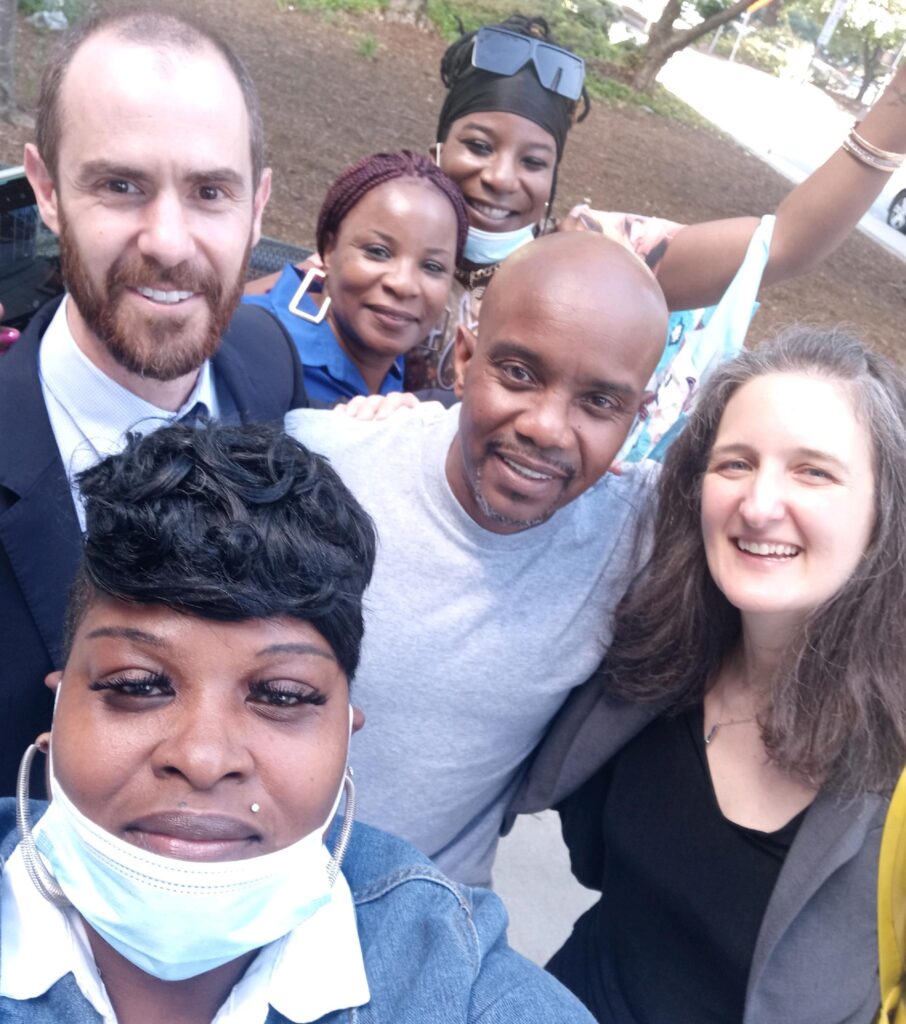
By Elizabeth Hambourger
Yesterday, my client Henry White went home to his family after 25 years in prison. It was one of the most heartwarming moments I’ve experienced as a lawyer, with all sides — including the family of Carl Marshburn, the murder victim in the case — agreeing that Mr. White should be released.
In a quarter century of incarceration, his sole disciplinary infraction was for having an unauthorized slice of cake. Even the district attorney gave his blessing to overturn Mr. White’s original sentence of life without parole, which allowed him to plead guilty to second-degree murder and be released immediately because he had already served enough time.
This rare outcome was the result of decades of work to bring to light evidence of racism in selecting Mr. White’s jury. During Mr. White’s 1997 death penalty trial, the prosecutor excluded two Black women from the jury and then admitted in open court that he removed them because of their race and gender, among other reasons.
Under the law, jurors cannot be removed on the basis of race or gender. Still, our courts at the time refused to act. The trial court allowed the jurors’ removal, and the Court of Appeals said that even though race was the “predominant” motivation for the jurors’ exclusion, it had to uphold Mr. White’s conviction because race was not the “sole reason” for their removal.
Any level of race discrimination is unacceptable, especially given our state’s history of all-white juries and racist death sentences. Prosecutors should not be able to get away with it simply by offering some token non-racial justifications. Yet, for decades North Carolina’s courts have refused to enforce the law against jury discrimination. Only recently have they begun to take on the problem.
A few years ago, my office, the Center for Death Penalty Litigation, decided to try again to convince a court to overturn Mr. White’s conviction based on the prosecutor’s admitted jury discrimination. Remarkably, the Attorney General’s office, which usually opposes these types of appeals, agreed that the claim should be heard.
When the Court of Appeals said it would take another look at the case, the Forsyth County District Attorney started to negotiate. Mr. White withdrew the jury discrimination claim, and in exchange the prosecution agreed to relief based on another problem with Mr. White’s trial: His defense attorney, who has since been disbarred, told the jury Mr. White was guilty without Mr. White’s consent. Mr. White has always maintained that he did not shoot Mr. Marshburn, but he admits he was involved in the crime.
Yesterday, as I watched the families of Mr. White and Mr. Marshburn embrace with relief, I was reminded that this case could have ended very differently. Back in 1997, prosecutors sought the death penalty for Mr. White. Thankfully, the jury chose life; otherwise he may not have lived to see this day.
Many other people were executed without ever getting a chance to prove that Black citizens were wrongfully excluded from their juries. It’s clear now that race discrimination on juries is a widespread problem, and many executions were based on unfair trials.
In those cases, the errors can never be corrected. And no one will ever get to experience the kind of redemption and healing I witnessed in a courtroom this week.


